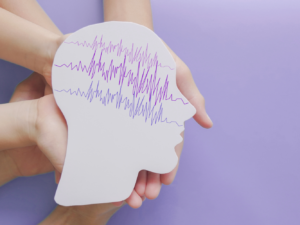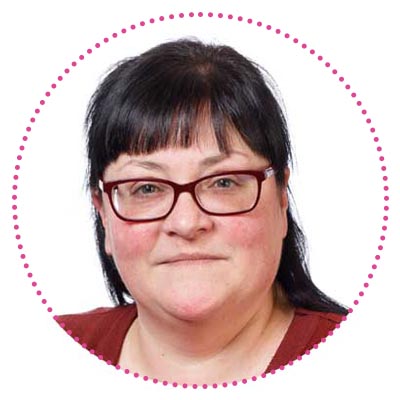Advice For Schools, Safeguarding
Emotional Abuse – Supporting Victims and Spotting the Signs
Safeguarding Adviser, Lucie Welch, discusses the signs of emotional abuse, the impacts, and how to support children in your care.
In 2020, the Crime Survey for England and Wales, released by the Office of National Statistics, estimated that 1 in 11 adults aged 18-74 had experienced emotional abuse before the age of 16. This equates to around 3.8 million people nationwide.
These statistics reflect emotional abuse perpetrated by those over the age of 16, with 90% of these being a child’s parents.
But what is emotional abuse?
Emotional abuse of children, which can also be known as mental or psychological abuse, is a form of maltreatment involving any non-physical behaviour that harms a child’s emotional development or well-being. It can include verbal abuse, such as insults, name-calling, and threats; non-verbal abuse, such as silent treatment and intimidation; and emotional neglect, such as withholding love, communication, affection or support.
Emotional abuse is using words and actions to undermine, manipulate, scare and hurt someone. It usually comes with an element of control and power over the victim and will often intend to dig away at the victim’s self-esteem and self-worth.
Emotional abuse can be stand-alone or accompany other types of abuse such as physical abuse, sexual abuse or neglect. It can often be difficult to identify due to the less-tangible nature of the impact and the signs can be confused with other more ‘normal’ life experiences, such as anxiety, exam stress or social issues.
The Domestic Abuse Act (2021) stated that children are victims of domestic abuse in their own right if they hear or see domestic abuse happening in the home. It is important to remember that this is emotional abuse and can be deeply impactful.
Emotional abuse doesn’t have to come from a parent. It can also come from other children, caregivers or family members as well as friends. People who have experienced emotional abuse themselves, may be more likely to behave that way towards others.
What are the signs of emotional abuse?
Emotional abuse does not always have obvious signs or symptoms and we often don’t know it is happening until a situation reaches a dangerous point. As educators, we know our children best and therefore we can often tell when something isn’t right; through understanding a child’s behaviour and interactions we are able to look out for signs in the way they are acting.
Children experiencing emotional abuse don’t all fit a set profile and there is no definitive list of signs, but they might:
- Suffer with lack of confidence, low self-esteem or be self-deprecating.
- Find it difficult to regulate their emotions – either under or overreacting to certain situations.
- Have difficulty making friends, maintaining relationships or working with others.
- Find it difficult to trust others, including adults in school.
- Experience depression, anxiety or other mental health issues.
- Have difficulty concentrating, struggle to take on new learning or focus in school.
- Seek out dangerous coping mechanisms, such as self-harm, eating disorders, alcohol or substance misuse.
- Suffer with physiological symptoms such as headaches or tummy aches.
No two children will experience the same abuse or show the same signs, so it is important for school staff to use their professional curiosity to ask questions, delve deeper and understand the bigger picture to find out exactly what is going on in the life of the child, so actions can be taken to keep the child safe.
What can be the impact of emotional abuse?
Emotional abuse is just as dangerous as other types of abuse and can have a serious, negative impact on a child for the rest of their lives. This may include:
- Mental health problems: Children who have been emotionally abused may be more likely to experience mental health problems, such as depression, anxiety, and post-traumatic stress disorder (PTSD) in adulthood.
- Emotional and behavioural problems: Children may have difficulty regulating their emotions, controlling their anger, and developing healthy coping mechanisms. They may also be more likely to engage in risky behaviours.
- Relationship problems: Children may have difficulty forming and maintaining healthy relationships. They may have trouble trusting others and may be more likely to experience abuse in their own relationships later in life.
- Attachment Issues: Emotional abuse can interfere with a child’s ability to form and maintain healthy attachments. Attachment issues in early childhood have been linked to insecure attachments in adulthood.
- Physical health problems: Emotional abuse can also lead to physical health problems and sleep problems. In the long term, emotional abuse can increase the risk of chronic health problems, such as heart disease, stroke, and diabetes.
- Academic problems: Children who have been emotionally abused may have difficulty concentrating in school and may have lower academic achievement. They may also be more likely to be absent from school or to stop attending.
How can we support children who have experienced emotional abuse?
We have a duty to protect the children in our care and respond quickly if we become aware that abuse is taking place. As well as making the necessary referrals to social care, we need to support the child through this really difficult time and therefore try to minimise the lifelong impact.
We can do this by:
- Creating a safe and supportive environment – let the child know that you are there for them and that adults are emotionally available. Use a trauma informed approach when talking with children and give them multiple opportunities to share on their own terms.
- Validating the child’s feelings – they may feel conflicted if the abuser is a parent or family member. Let them share their feelings and respond in a non-judgemental and supportive way.
- Helping the child to develop healthy coping strategies – Teach them how to regulate their emotions and deal with stress in a healthy way. This could include activities such as relaxation techniques, exercise, and creative expression.
- Focusing on the positives – identify the child’s strengths and work on building their self-esteem, resilience and confidence.
Emotional abuse is hugely detrimental to a child’s growth, development and wellbeing and therefore is something all members of staff should be vigilant for. All staff should understand the signs and symptoms and the reporting mechanisms in your setting should they have a concern.
For further staff training, please contact our safeguarding team on [email protected] to arrange a staff meeting or INSET session.
Need more support with this topic?
If you would like support with how to deal with concerns regarding safeguarding, please feel free to contact our safeguarding team at [email protected]
Book Your Safeguarding Training Today
Services For Education provides a wide range of safeguarding training courses throughout the year. Browse our offer using the arrows below.
About the Author
 Lucie Welch – Adviser, Services For Education
Lucie Welch – Adviser, Services For Education
Lucie Welch has worked in the field of Primary Education for the last 15 years, holding the positions of Assistant Head of School, Designated Safeguarding Lead, Attendance Lead and Designated Teacher for Looked After Children. Through working across several local authorities and within multi-academy trusts, Lucie has garnered a passion for safeguarding and supporting children and young people to enable them to thrive.
At Services For Education, Lucie is an integral part of the Safeguarding team, sharing her expertise with schools, colleges, trusts, and other educational settings across the city of Birmingham and beyond. Dedicated to improving safeguarding practices in an actionable and impactful way, Lucie works closely with settings to provide bespoke training, supports with reflection on their own practices during Safeguarding audits and always strives to contribute to a better learning environment for all children. Through delivery of statutory training for DSLs and Safer Recruitment, Lucie works with colleagues in all age ranges and is a source of expertise within these areas.
Lucie also wears other important hats within the School Support Team. Not only is she dedicated to ensuring the safety and well-being of students through her role in safeguarding, but she also plays a key part in the PSHE/RSE and Health for Life teams. Additionally, Lucie partners with the Best Practice Network to deliver the Early Career Framework, supporting new teachers in their professional development.
NEED SAFEGUARDING SUPPORT AT YOUR SCHOOL?
Our expert advisers can provide in-school visits to deliver sessions on any specific safeguarding issues that are relevant to your setting. We also offer consultancy and a detailed safeguarding audit. We will work with you to understand your exact requirements.
Get in touch with us today if you’d like to discuss bespoke Safeguarding training for your school.
find out moreDiscover more from Services For Education
Subscribe to get the latest posts sent to your email.










 Jo Perrin - Adviser, Services For Education
Jo Perrin - Adviser, Services For Education
 Marsha
Marsha 


